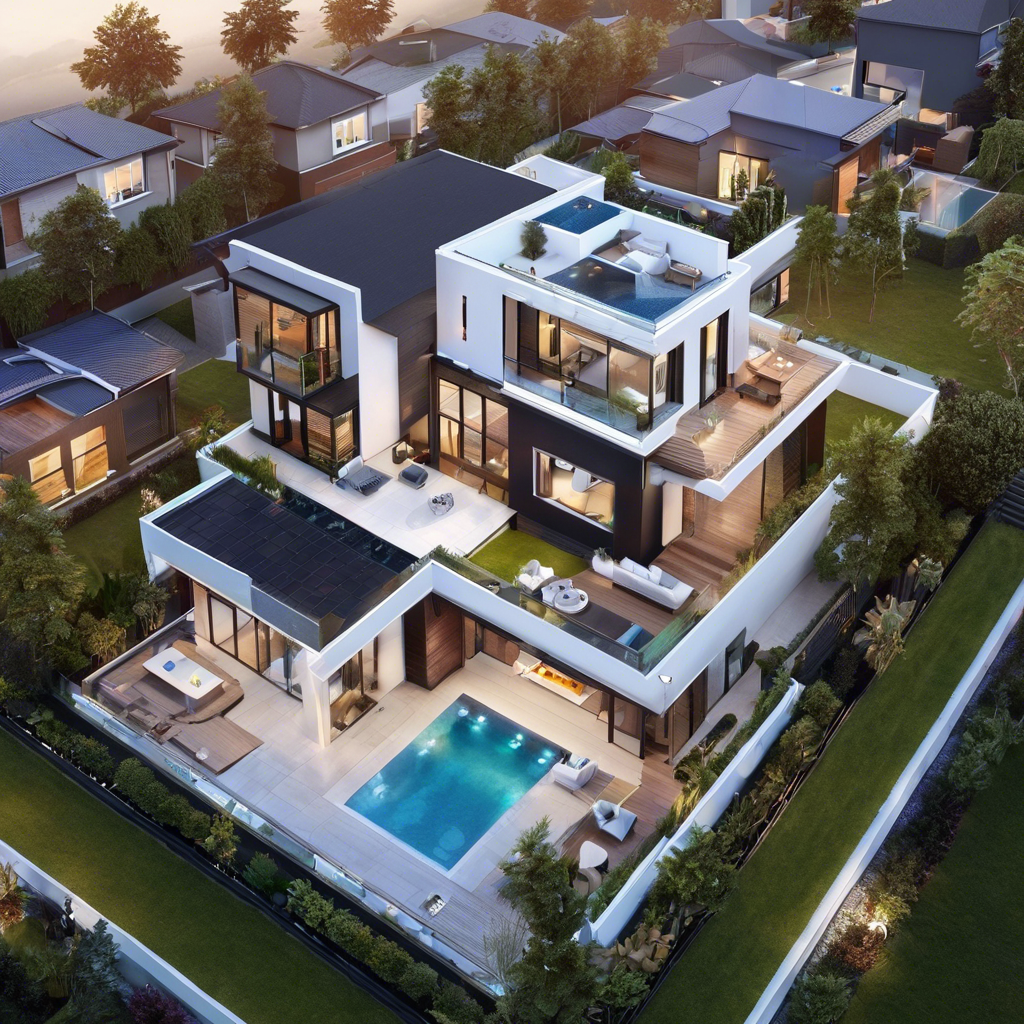The concept of smart homes has revolutionized the real estate industry in recent years. With the advancement of technology, more and more properties are being equipped with smart devices and systems that enhance convenience, security, and energy efficiency for homeowners. This trend has significantly impacted property sales and is reshaping the way people view and purchase homes.
Smart homes are residences that are equipped with internet-connected devices and systems that allow for remote monitoring and control. These devices can range from smart thermostats and lighting systems to security cameras and voice-activated assistants like Amazon’s Alexa and Google Home. The integration of these technologies into homes has made daily tasks easier and more efficient for homeowners.
One of the key drivers behind the rise of smart homes in property sales is the increasing demand for convenience and connectivity among homebuyers. In today’s fast-paced world, people are looking for ways to simplify their lives and streamline everyday tasks. Smart home technology offers a solution to this by allowing homeowners to control various aspects of their homes with just a few taps on their smartphones or voice commands.
Another factor contributing to the popularity of smart homes is the emphasis on security and safety. Smart devices such as video doorbells, smart locks, and motion sensors provide homeowners with enhanced security features that traditional homes may lack. These systems can send real-time alerts to homeowners’ smartphones in case of any suspicious activity, giving them peace of mind and a sense of control over their home security.
Energy efficiency is also a major selling point for smart homes. Smart thermostats, for example, can learn homeowners’ behavior patterns and adjust the temperature settings accordingly, leading to significant energy savings over time. Additionally, smart lighting systems can be programmed to turn off when not in use, further reducing energy consumption and utility bills.
The integration of smart home technology can increase the overall value of a property and make it more attractive to potential buyers. Homes with smart features are often perceived as modern, high-tech, and luxurious, appealing to a wide range of buyers, including tech-savvy millennials and older generations looking to invest in innovative living spaces.
Real estate developers and agents are recognizing the growing demand for smart homes and are incorporating these features into new construction projects and existing properties. Marketing a home as a smart home can give it a competitive edge in the market and attract a higher selling price compared to traditional homes without smart technology.
The rise of smart homes in property sales has also led to the emergence of specialized real estate agents who are knowledgeable about smart home technology and its implications for buyers and sellers. These agents can help clients navigate the complexities of smart home systems, assess their value, and make informed decisions when buying or selling a smart home.
Despite the numerous benefits of smart homes, there are some challenges and considerations to keep in mind for both buyers and sellers. One of the main concerns is the potential security risks associated with interconnected devices and systems. Hackers could potentially access personal information or control smart devices if proper security measures are not in place.
Compatibility issues between different smart devices and systems can also pose a challenge for homeowners looking to integrate multiple technologies into their homes seamlessly. Ensuring that all devices work harmoniously together and receive timely updates and support from manufacturers is essential for a smooth smart home experience.
Privacy concerns are another factor to consider when it comes to smart homes. With devices constantly collecting data and monitoring activities within the home, there is a risk of privacy breaches if this information falls into the wrong hands. Homeowners should be mindful of the data collected by smart devices and take steps to protect their privacy.
As the popularity of smart homes continues to grow, industry experts predict that the trend will only accelerate in the coming years. Advances in artificial intelligence, machine learning, and IoT (Internet of Things) technology will further enhance the capabilities of smart homes and offer new possibilities for homeowners to customize and optimize their living spaces.
Government regulations and standards for smart home technology are also expected to evolve to address privacy and security concerns and ensure that homeowners are protected from potential risks. Collaborations between tech companies, real estate developers, and government agencies will play a crucial role in shaping the future of smart homes and establishing guidelines for their implementation.
In conclusion, the rise of smart homes in property sales represents a significant shift in the real estate industry towards more connected, convenient, and energy-efficient living spaces. With the increasing demand for smart technology among homebuyers and the potential for added value and security, smart homes are becoming a desirable choice for modern homeowners looking to invest in the future of living. As the technology continues to advance and evolve, the possibilities for smart homes are endless, offering a glimpse into the future of residential living.
